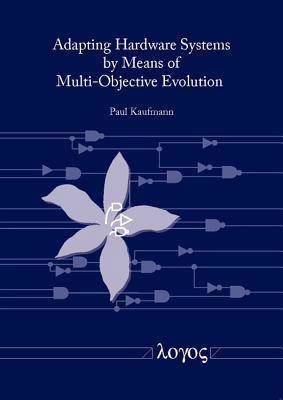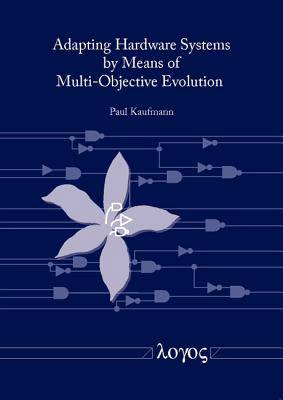
- Afhalen na 1 uur in een winkel met voorraad
- Gratis thuislevering in België vanaf € 30
- Ruim aanbod met 7 miljoen producten
- Afhalen na 1 uur in een winkel met voorraad
- Gratis thuislevering in België vanaf € 30
- Ruim aanbod met 7 miljoen producten
€ 101,95
+ 203 punten
Omschrijving
Reconfigurable circuit devices have opened up a fundamentally new way of creating adaptable systems. Combined with artificial evolution, reconfigurable circuits allow an elegant adaptation approach to compensating for changes in the distribution of input data, computational resource errors, and variations in resource requirements. Referred to as "Evolvable Hardware" (EHW), this paradigm has yielded astonishing results for traditional engineering challenges and has discovered intriguing design principles, which have not yet been seen in conventional engineering. In this thesis, we present new and fundamental work on Evolvable Hardware motivated by the insight that Evolvable Hardware needs to compensate for events with different change rates. To solve the challenge of different adaptation speeds, we propose a unified adaptation approach based on multi-objective evolution, evolving and propagating candidate solutions that are diverse in objectives that may experience radical changes. Focusing on algorithmic aspects, we enable Cartesian Genetic Programming (CGP) model, which we are using to encode Boolean circuits, for multi-objective optimization by introducing a meaningful recombination operator. We improve the scalability of CGP by objectives scaling, periodization of local- and global-search algorithms, and the automatic acquisition and reuse of subfunctions using age- and cone-based techniques. We validate our methods on the applications of adaptation of hardware classifiers to resource changes, recognition of muscular signals for prosthesis control and optimization of processor caches.
Specificaties
Betrokkenen
- Auteur(s):
- Uitgeverij:
Inhoud
- Aantal bladzijden:
- 265
- Taal:
- Engels
Eigenschappen
- Productcode (EAN):
- 9783832535308
- Verschijningsdatum:
- 20/10/2013
- Uitvoering:
- Paperback
- Formaat:
- Trade paperback (VS)
- Afmetingen:
- 145 mm x 211 mm
- Gewicht:
- 339 g

Alleen bij Standaard Boekhandel
+ 203 punten op je klantenkaart van Standaard Boekhandel
Beoordelingen
We publiceren alleen reviews die voldoen aan de voorwaarden voor reviews. Bekijk onze voorwaarden voor reviews.










